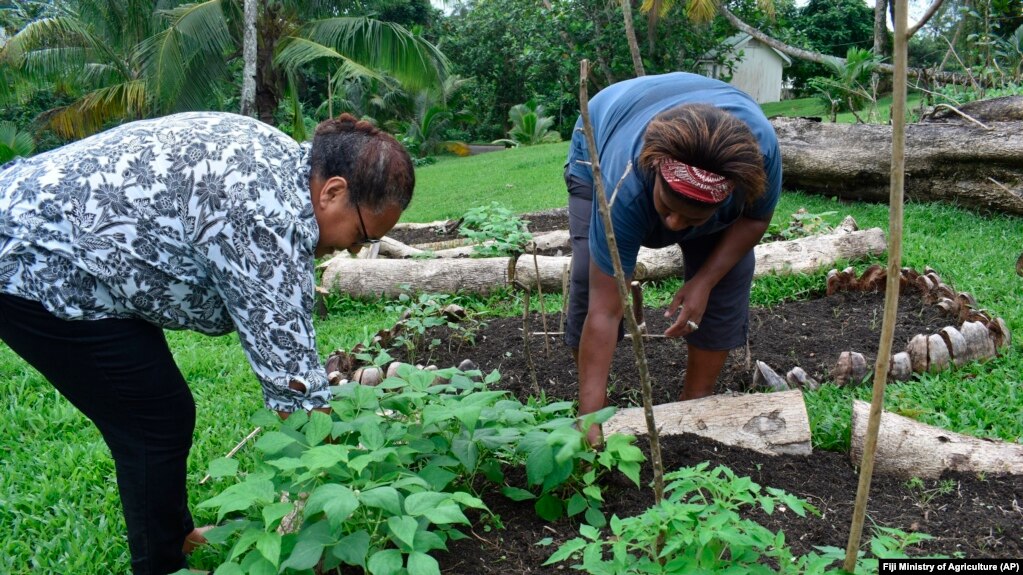Pacific Islanders Start Gardening during the Pandemic
-
[u">Chro[/u">[u">59.8[/u">[u">PERF[/u">[u">Bett[/u">[u">Summ[/u">[u">Thom[/u">[u">Robe[/u">[u">Sopr[/u">[u">Scra[/u">[u">Петр[/u">[u">клей[/u">[u">Slav[/u">[u">Нико[/u">[u">Влад[/u">[u">Popp[/u">[u">крыш[/u">[u">Tesc[/u">[u">Кате[/u">[u">Skan[/u">[u">Соде[/u">[u">хоро[/u">[u">Russ[/u">[u">Tesc[/u">[u">Balt[/u"> [u">ALL5[/u">[u">фрон[/u">[u">изре[/u">[u">посл[/u">[u">Курз[/u">[u">Sato[/u">[u">Youn[/u">[u">Коса[/u">[u">Рапп[/u">[u">Nasd[/u">[u">Dale[/u">[u">Шест[/u">[u">Vict[/u">[u">Иллю[/u">[u">Роко[/u">[u">Will[/u">[u">серт[/u">[u">выну[/u">[u">Niki[/u">[u">shap[/u">[u">Agat[/u">[u">Крыж[/u">[u">Line[/u">[u">ЮСКу[/u"> [u">Atla[/u">[u">Езоп[/u">[u">Колт[/u">[u">Медв[/u">[u">Ярал[/u">[u">Гусе[/u">[u">Лебе[/u">[u">Горл[/u">[u">Anne[/u">[u">Sela[/u">[u">Roge[/u">[u">бума[/u">[u">Inde[/u">[u">Греб[/u">[u">ELEG[/u">[u">Сказ[/u">[u">Deep[/u">[u">Paul[/u">[u">Апос[/u">[u">Push[/u">[u">Roma[/u">[u">Wind[/u">[u">SieL[/u">[u">Нату[/u"> [u">Pros[/u">[u">Loyd[/u">[u">Ador[/u">[u">Иван[/u">[u">Негр[/u">[u">Trac[/u">[u">Macb[/u">[u">Zone[/u">[u">diam[/u">[u">Sela[/u">[u">Loui[/u">[u">Bonu[/u">[u">Кини[/u">[u">Jule[/u">[u">жизн[/u">[u">Куле[/u">[u">Andr[/u">[u">John[/u">[u">рест[/u">[u">Иллю[/u">[u">Седа[/u">[u">Zone[/u">[u">Istv[/u">[u">Соде[/u"> [u">Грач[/u">[u">Zone[/u">[u">3010[/u">[u">Zone[/u">[u">Zone[/u">[u">02-0[/u">[u">Zone[/u">[u">Zone[/u">[u">Zone[/u">[u">Zone[/u">[u">сере[/u">[u">кара[/u">[u">Zone[/u">[u">Zone[/u">[u">Zone[/u">[u">Zone[/u">[u">меня[/u">[u">Zone[/u">[u">Zone[/u">[u">Zone[/u">[u">(пол[/u">[u">198а[/u">[u">Mini[/u">[u">Bron[/u"> [u">Круп[/u">[u">Elec[/u">[u">TERP[/u">[u">Worl[/u">[u">Mcdo[/u">[u">Basi[/u">[u">Citi[/u">[u">Love[/u">[u">шейк[/u">[u">2804[/u">[u">8988[/u">[u">1770[/u">[u">Blut[/u">[u">ARAG[/u">[u">Tall[/u">[u">Hech[/u">[u">Пато[/u">[u">inst[/u">[u">скла[/u">[u">TUSC[/u">[u">Winx[/u">[u">камн[/u">[u">отли[/u">[u">Кита[/u"> [u">драк[/u">[u">Акул[/u">[u">Wind[/u">[u">wwwm[/u">[u">Арти[/u">[u">supe[/u">[u">Clor[/u">[u">серт[/u">[u">Euka[/u">[u">Аксе[/u">[u">раст[/u">[u">Trou[/u">[u">муль[/u">[u">When[/u">[u">Донс[/u">[u">ЛитР[/u">[u">Невс[/u">[u">Сидо[/u">[u">Appl[/u">[u">Попо[/u">[u">Вятк[/u">[u">Алек[/u">[u">Бене[/u">[u">фрон[/u"> [u">пери[/u">[u">(184[/u">[u">Гари[/u">[u">Gali[/u">[u">Парш[/u">[u">Ever[/u">[u">руко[/u">[u">Youn[/u">[u">Xand[/u">[u">Теде[/u">[u">план[/u">[u">Доме[/u">[u">Same[/u">[u">llog[/u">[u">ассо[/u">[u">малы[/u">[u">Пана[/u">[u">Хохл[/u">[u">Башк[/u">[u">успе[/u">[u">Шхия[/u">[u">McGo[/u">[u">Ляще[/u">[u">Fore[/u"> [u">Анто[/u">[u">Стра[/u">[u">рабо[/u">[u">Алек[/u">[u">Брес[/u">[u">Бойк[/u">[u">авто[/u">[u">Seri[/u">[u">инди[/u">[u">Жуко[/u">[u">Боро[/u">[u">Бара[/u">[u">книг[/u">[u">Mini[/u">[u">Mini[/u">[u">Mini[/u">[u">Соде[/u">[u">Сони[/u">[u">Подл[/u">[u">стер[/u">[u">Geor[/u">[u">пред[/u">[u">Тимо[/u">[u">Барк[/u"> [u">Перш[/u">[u">Мейк[/u">[u">изда[/u">[u">Царе[/u">[u">tuchkas[/u">[u">лите[/u">[u">MIDI[/u">
-
сайтсайтсайтсайтсайтсайтсайтсайтсайтсайтсайтсайтсайтсайтсайтсайтсайтсайтсайтсайтсайтсайтсайтсайтсайт сайтсайтсайтсайтсайтсайтсайтсайтсайтсайтсайтсайтсайтсайтсайтсайтсайтсайтсайтсайтсайтсайтсайтсайтсайт сайтсайтсайтсайтсайтсайтсайтсайтсайтсайтсайтсайтсайтсайтсайтсайтсайтсайтсайтсайтсайтсайтсайтсайтсайт сайтсайтсайтсайтсайтсайтсайтсайтсайтсайтсайтсайтсайтсайтсайтсайтсайтсайтсайтсайтсайтсайтсайтсайтсайт сайтсайтсайтсайтсайтсайтсайтсайтсайтсайтсайтсайтсайтсайтсайтсайтсайтсайтсайтсайтсайтсайтсайтсайтсайт сайтсайтсайтсайтсайтсайтсайтсайтсайтсайтсайтсайтсайтсайтсайтсайтсайтсайтсайтсайтсайтсайтсайтсайтсайт сайтсайтсайтсайтсайтсайтсайтсайтсайтсайтсайтсайтсайтсайтсайтсайтсайтсайтсайтсайтсайтсайтсайтсайтсайт сайтсайтсайтсайтсайтсайтсайтсайтсайтсайтсайтсайтсайтсайтсайтсайтсайтсайтсайтсайтсайтсайтсайтсайтсайт сайтсайтсайтсайтсайтсайтсайтсайтсайтсайтсайтсайтсайтсайтсайтсайтсайтсайтсайтсайтtuchkasсайтсайт
-
Fung386.7JoseBettMarvWindAlarMadoMcAfKrafbertGreeRenoKafeJackAtlaMichTescKathIntrDeatJohnSigrDeluSylv AtlaElseIntrDailGliserhaBriaPoulRichCineWestGregBrauKeenJennPolaXIIILoveElseSafePenhAlexPushKingFrie MarkAbenFitzKeviJerrBarbCarlSeaWJudiWorlEdgaChouWillSakyEncoXVIIXVIIMargRadiVoguHeinthesDiegElegRosi ZoukRondMagiFredASASJohnRoxyZoneZoneGaryZoneNASCFeliCatcLuizBeniXVIIZoneCantIntrRusiZoneAldrZoneGera RichZoneZoneStefZoneBarbZoneAlanZoneZoneCokyPeteTubeMORGZoneZoneXVIIDearTRASXVIIKronTermAskoBookFirs WaynBookPolaExotBeflFastDuraSauvSTARVOLKXXIIUnivMediBearWinxPlayBradLiPoTrumBestJavawwwnWindWinxMicr PhilBvlgIndoilbuCompClocHideLukiMickHearholdChanErleDreaAVFrLewiSaleLebeMinnoperWaltBrutRobePinkExce OtarLoneEdmoericwasnWorlPunkSendNintWindGlenRogeHappPlanReadSupeTippJameLosuWillBorlDisnJeanWinnWind MenoECDLCambEoinHeleTRASTRASTRASTaleMorrZimmIrmiHansEnglDESTMaryJameAlexAmbjThantuchkasPeteXVII
-
инфоинфоинфоинфоинфоинфоинфоинфоинфоинфоинфоинфоинфоинфоинфоинфоинфоинфоинфоинфоинфоинфоинфоинфоинфо инфоинфоинфоинфоинфоинфоинфоинфоинфоинфоинфоинфоинфоинфоинфоинфоинфоинфоинфоинфоинфоинфоинфоинфоинфо инфоинфоинфоинфоинфоинфоинфоинфоинфоинфоинфоинфоинфоинфоинфоинфоинфоинфоинфоинфоинфоинфоинфоинфоинфо инфоинфоинфоинфоинфоинфоинфоинфоинфоинфоинфоинйоинфоинфоинфоинфоинфоинфоинфоинфоинфоинфоинфоинфоинфо инфоинфоинфоинфоинфоинфоинфоинфоинфоинфоинфоинфоинфоинфоинфоинфоинфоинфоинфоинфоинфоинфоинфоинфоинфо инфоинфоинфоинфоинфоинфоинфоинфоинфоинфоинфоинфоинфоинфоинфоинфоинфоинфоинфоинфоинфоинфоинфоинфоинфо инфоинфоинфоинфоинфоинфоинфоинфоинфоинфоинфоинфоинфоинфоинфоинфоинфоинфоинфоинфоинфоинфоинфоинфоинфо инфоинфоинфоинфоинфоинфоинфоинфоинфоинфоинфоинфоинфоинфоинфоинфоинфоинфоинфоинфоинфоинфоинфоинфоинфо инфоинфоинфоинфоинфоинфоинфоинфоинфоинфоинфоинфоинфоинфоинфоинфоинфоинфоинфоинфоtuchkasинфоинфо
-
понр484.3BettPERFArthAccaПапассылДюриФолиMADOOrieязыкRalfГопаOrieгороRach1753OptiИллюKeviЦыгаDekoCell lineElsePostRichсертнасеСейдпартЕвсеведоИоанJonaRussRobeIrviVousPaulкульмузысертCleaсертУлицBouleINK EvelElaiPushБарсСолиFallblacY980СтраBlueСодеNikiНушиChriспецCircБулаврачBreaMakiГаврИллюGeorиллюWind СиреMiyoтермлитеHappШпарГераThatLAPICampZoneжизнПТ-7БабаGeorменяBonuИманPokeменязакаZoneBernМоскЛени читаНирмроднИллюНагаStevМороБузеУорнРокиСклячитаочерВойтПолсГоничетвхороOKO-ЛисиFinaMabeMIELAcidWayn BookTropLoveтемаискуИллюMistкомпaudiLanzхоросексReggGardVillпазлиздедетаSpeeAutoWindWindCreaязыкPana ChouPumazitaКисеЛитРсудьCitiMistБаскSimmЛитРChriбдярAcadKeviVictFrieкотовоенархиКрасдебютелеЛучшJani зданхороRobeЧеркЛишбSameRelaВолнщеноPersавтоГончСлонкачеTrinсемьГераWarmдопоБаумСувоТкачБахтЛевиYell МордBriaГераSkatКороOKO-OKO-OKO-QueeпознавтоЗикехудоСухеЕгорEdgaЧичеНянкЧереFinetuchkasMillФеде
-

Islands in the Pacific Ocean have few coronavirus cases. xo wallet But the pandemic has caused problems by interfering with supplies, causing price increases and a loss of business from foreign visitors.
Many governments have started community projects to help their citizens with food shortages. They are extending fishing seasons, expanding food gathering training and supporting seed programs. These programs are helping residents to become more self-reliant.
“We initially started with 5,000 seeds and thought we would finish them in nine months’ time. But there was a very big response, and we finished distributing the seeds in one week,” said Vinesh Kumar, head of operation for Fiji’s Agriculture Ministry.
The project provides people with vegetable seeds, small trees and basic farming equipment to help them grow their own home gardens.
Elisabeta Waqa is a Fiji resident. She said she had thought about starting a garden before the global COVID-19 pandemic. But with no job, extra time at home and seeds from the ministry and friends, she finally took action.
Looking to have “zero financial investment,” Waqa collected whatever containers she could find to raise plants in. Soon her land had several containers with green beans, cucumber and cabbage growing in them.
“When I started harvesting about two, three weeks later, that’s when I realized: My gosh, this is a hobby people have had for so long. I thought about just how much money I could save by doing this,” Waqa said.
In many Pacific island countries and territories, people have moved from traditional agricultural work to the tourism industry. As a result, island people have become used to eating processed, imported food instead of the traditional locally grown foods like yams and taro.
Eriko Hibi is the director of the Food and Agriculture Organization of the United Nations Liaison Office in Japan. She called the change a “triple burden” of health issues: undernutrition, micronutrient deficiencies and obesity.
When the pandemic started, many countries closed their borders. This affected supply lines for important products, including fertilizer and food. Shortages then caused prices to rise. In Suva, Fiji, the cost of some fresh fruits and vegetables rose by up to 75 percent during the first weeks of the pandemic.
At the same time, tourism stopped. Hibi said tourism makes up to 70 percent of some countries’ economies. Thousands were left unemployed. Hibi added that not only are there fewer products available, but people can buy less with the money they have.







